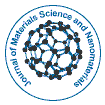开放获取期刊获得更多读者和引用
700 种期刊 和 15,000,000 名读者 每份期刊 获得 25,000 多名读者
抽象的
Expert Opinions on Regulatory Readiness for Managing Nanotechnology Risks
Chris Beadriez
The ability of regulatory systems to evaluate and manage the advantages and dangers of new technologies is a key factor in determining their potential and promise. However, there is still a great deal of ambiguity around the potential effects of nanomaterials on human health and the environment, therefore the ability of current legislation to address this issue has been called into question. Here, we use data from a survey (N=254) of US-based regulatory scientists and decision-makers, environmental health and safety scientists, and nanoscientists and engineers to investigate whether regulatory bodies are prepared to manage the dangers associated with nanomaterials [1]. We find that the regulatory authorities are seen as being unprepared by all three expert groups. confidence in the capabilities of regulatory bodies to monitor their expanding use and use in society. The impact on scientists working on basic, applied, or health and safety research on nanomaterials is less noticeable than it is on regulators themselves. Particularly likely to perceive agencies as unprepared are those who consider the threats associated with nanotechnology to be novel, unknown,and difficult to quantify. Additionally identified as minor but important influences on perceived agency preparation were socio-political values, stakeholder responsibility for risk management, and trust in regulatory bodies [2]. These findings highlight the need for new techniques and tools to enable the assessment of nanomaterial dangers and to restore public trust in the ability of regulatory bodies to monitor their expanding use and use in society.

 English
English  Spanish
Spanish  Russian
Russian  German
German  French
French  Japanese
Japanese  Portuguese
Portuguese  Hindi
Hindi